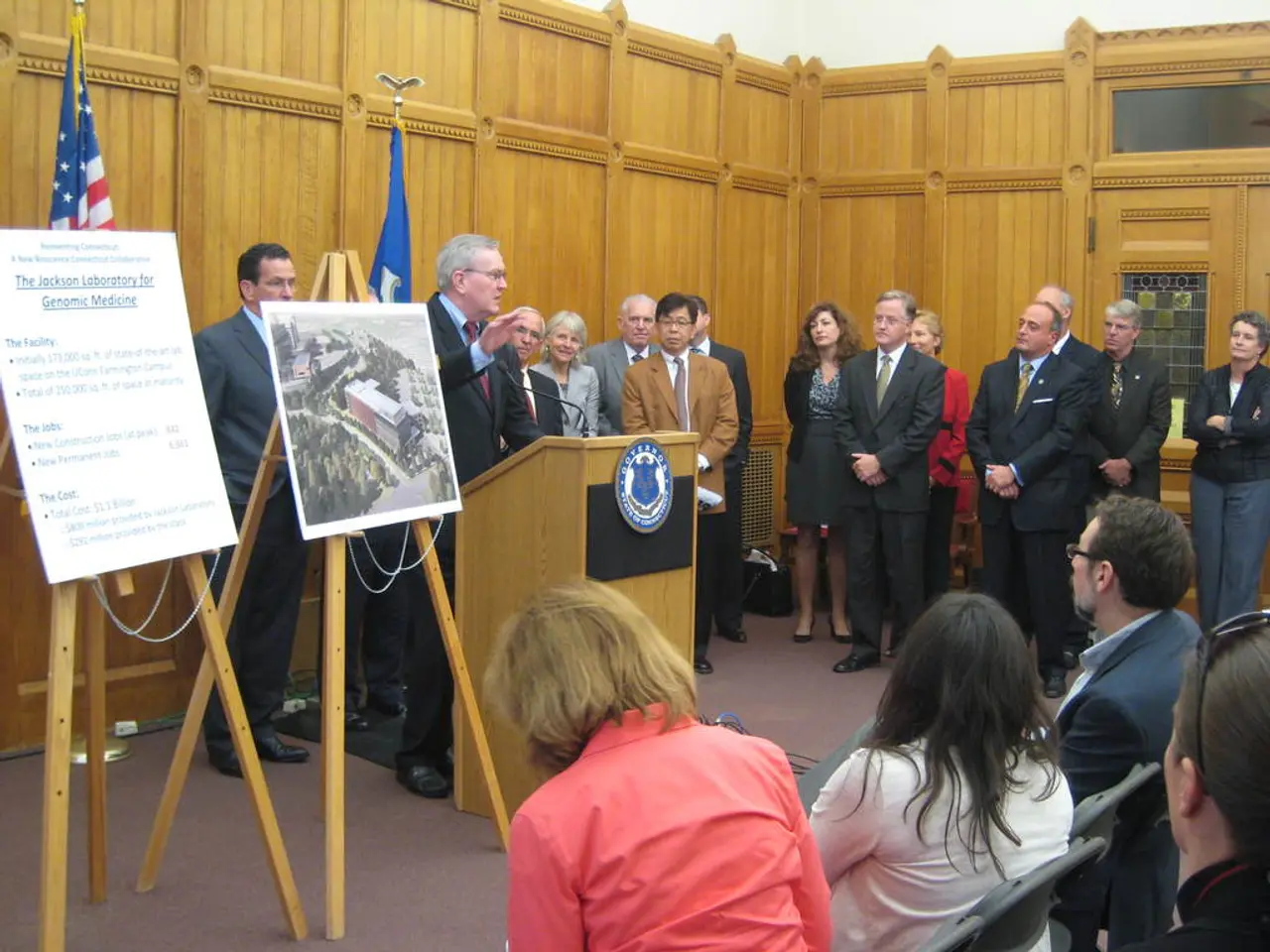Voters in Norway Face a Pivotal Election Decision Regarding the Nation's Future Direction of Government
Norway is preparing for elections on Sunday and Monday, with the political scene poised for a significant shift. The summer political festival in Arendal featured a nationally televised debate with major politico candidates, including current Labour Prime Minister Jonas Gahr Støre.
The elections could lead to either the continuation of a Labour-led government or a shift towards the centre-right political landscape. Norway's political framework, which includes 19 constituencies utilizing proportional representation, makes coalition governance a common practice. Achieving a majority in the Storting, Norway's parliament, requires at least 85 seats, a goal that recent tensions within political coalitions have complicated.
The primary focus of the election has shifted to the rising cost of living and issues of economic disparity. Labour, on the other hand, plans for an extensive review of tax policies led by Jens Stoltenberg, who has cautioned against establishing a tax system that favors the wealthiest citizens. Some candidates, such as Sylvi Listhaug, advocate for the elimination of the wealth tax, while others, like Solberg's party, wish to exempt 'working capital' from these taxes.
Norway's foreign policy has also played a role in the campaign. The country's sovereign wealth fund recently divested from Israeli companies due to international human rights concerns linked to the Gaza conflict. Recent world events, including conflicts in Gaza and Ukraine, and US trade policies have left an indelible mark on the election discussions. Norway, as a founding member of NATO and part of the European single market, finds itself at a strategic point, sharing an Arctic border with Russia.
The prospect of EU membership has remained relatively unaddressed in party platforms due to its polarizing nature. Voter concerns are aptly reflected in remarks from residents like Andreas, who highlights the need for increased public spending on education and infrastructure.
Recent opinion polls suggest that Labour is leading, benefiting from the 'Stoltenberg effect.' However, Støre, aged 65, is facing formidable opposition from a coalition of conservative factions, including the right-wing populist Progress Party and the Høyre party.
Should the centre-right coalition emerge successful, a significant question will arise regarding the appointment of the next Prime Minister, with Solberg and Listhaug being potential candidates. The possible conservative coalition under Sylvi Listhaug, if the Conservative Alliance wins the majority in the Norwegian elections, would primarily include the Progress Party led by Listhaug as the strongest force, along with other likely centre-right and right-wing parties that form the conservative bloc.
The upcoming election may yield no clear majority, adding another layer of complexity to Norway's political landscape. Regardless of the outcome, the focus on economic issues and foreign policy promises to shape the direction of Norway in the coming years.
Read also:
- United States tariffs pose a threat to India, necessitating the recruitment of adept negotiators or strategists, similar to those who had influenced Trump's decisions.
- Weekly happenings in the German Federal Parliament (Bundestag)
- Southwest region's most popular posts, accompanied by an inquiry:
- Discussion between Putin and Trump in Alaska could potentially overshadow Ukraine's concerns








